#From Byzantium
Text
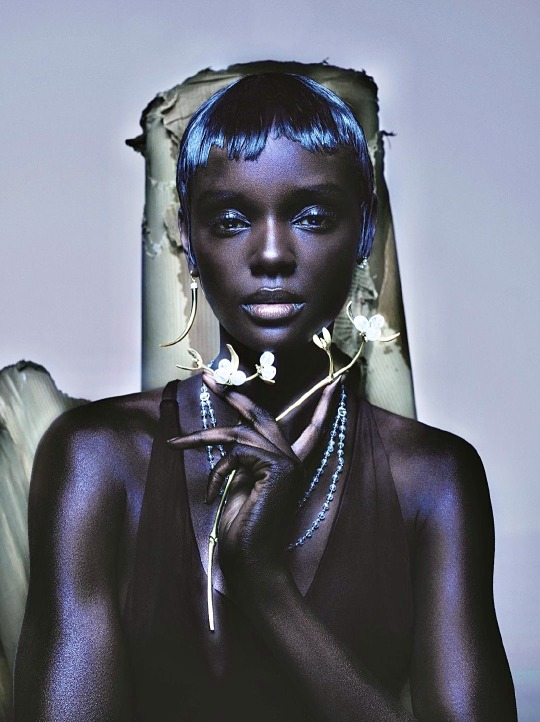
From Byzantium - Vogue UK April 2019: Duckie Thot by Nick Knight
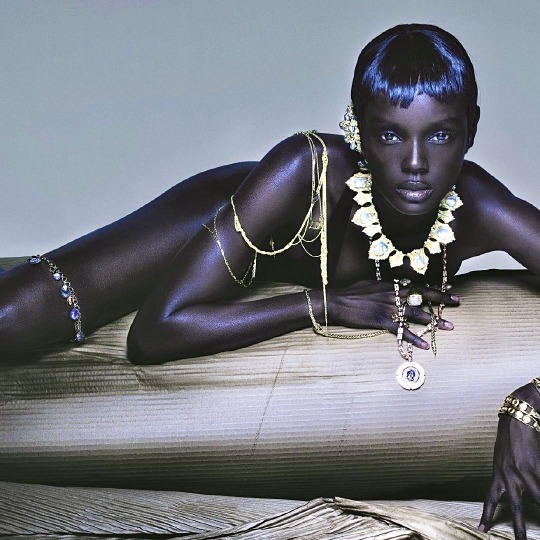
From Byzantium - Vogue UK April 2019: Duckie Thot by Nick Knight
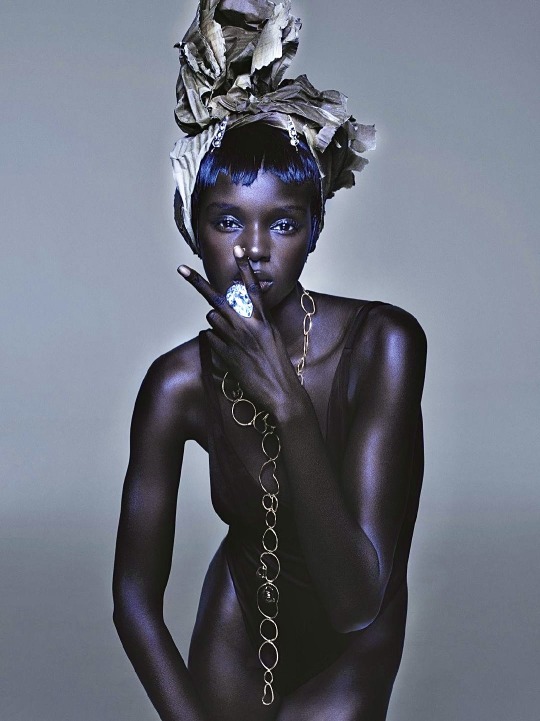
From Byzantium - Vogue UK April 2019: Duckie Thot by Nick Knight
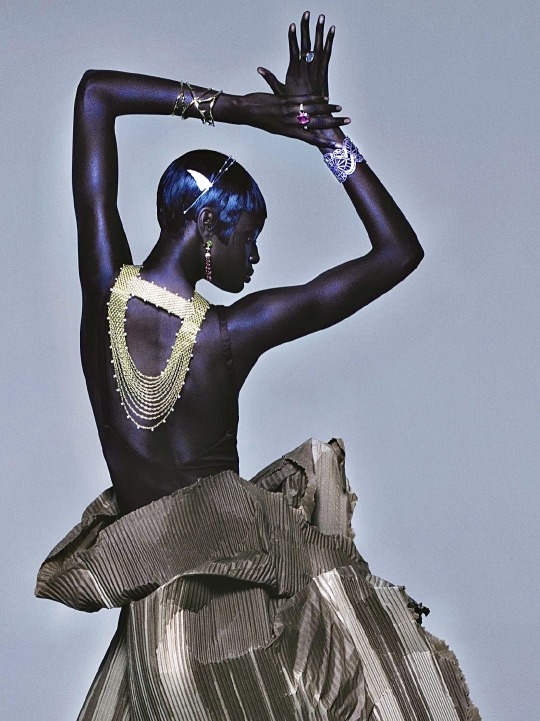
From Byzantium - Vogue UK April 2019: Duckie Thot by Nick Knight
From Byzantium
Vogue UK April 2019
Model: Duckie Thot
Photographer: Nick Knight
Source: Aesthetic Sharer ZHR @CGdrawing on X:

•
5 notes
·
View notes
Text

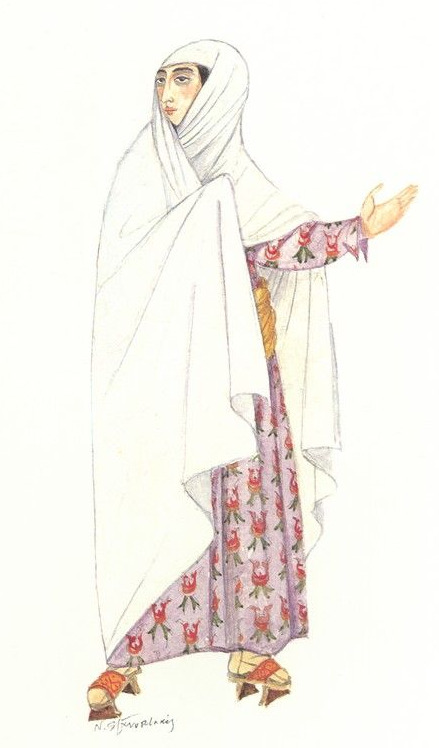
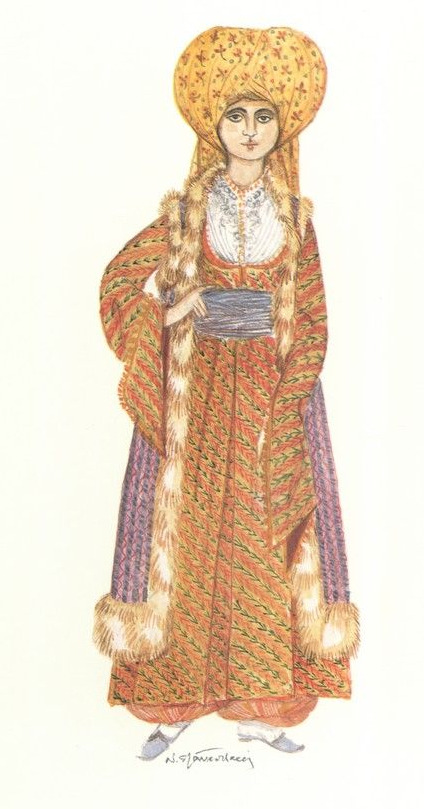

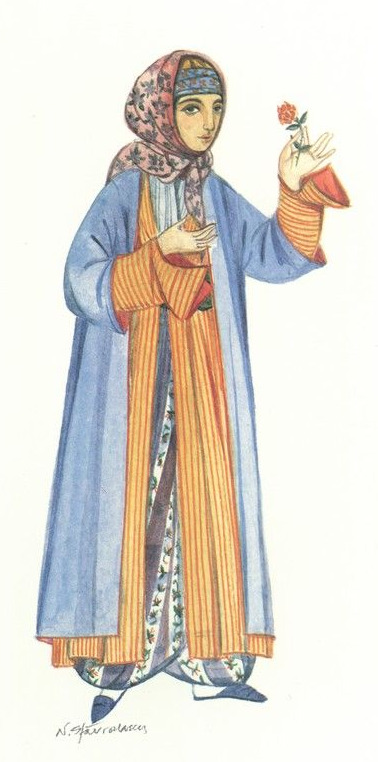
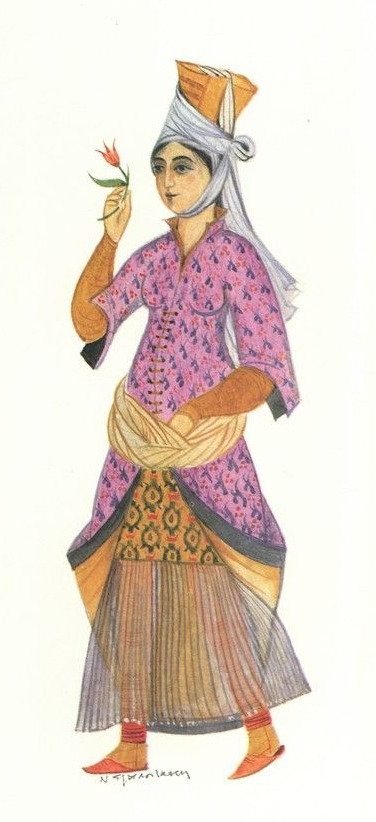
Sephardi & Romaniote Jewish Women's Clothing in the Byzantine and Ottoman Periods, illustrated by Nikos Stavroulakis
#jumblr#jewish#jewish art#jewish women#jewish history#sephardim#romaniotes#art#these are from all over. byzantium/constantinople/istanbul and smyrna/izmir and rhodes and adrianople/edirne and thessaloniki etc#shoutout to a fellow edirne girlie in the top right.#my posts
5K notes
·
View notes
Text
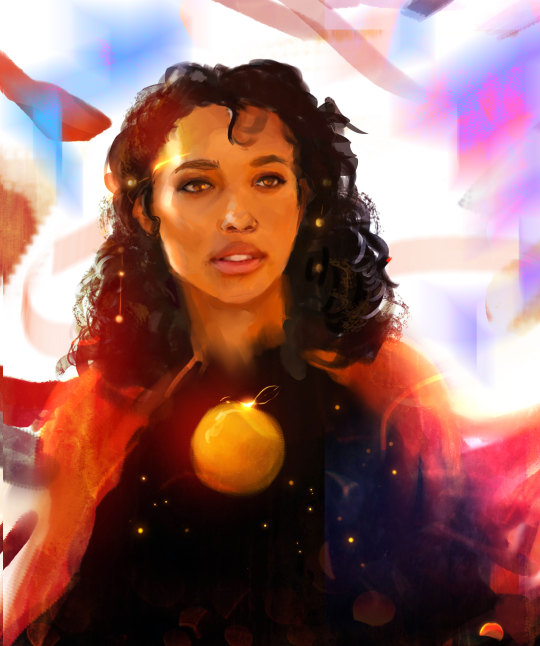
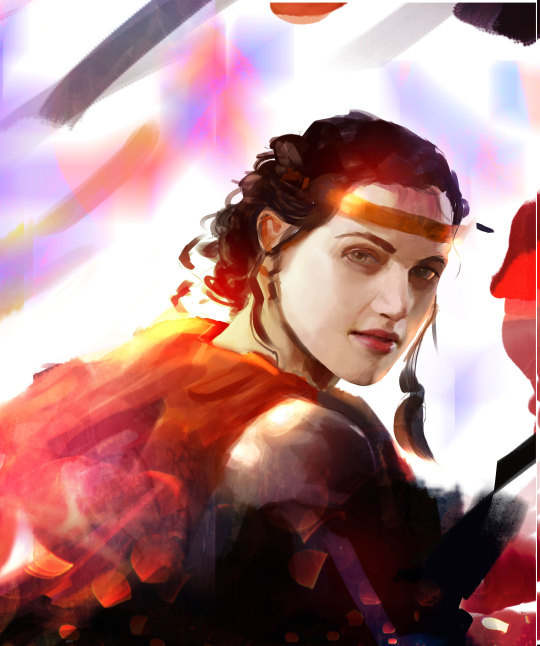

Priory of the Orange Tree
(Kylie Bunbury as my Ead // Katie McGrath as my Sabran)
#priory of the orange tree#eadaz uq nara#sabran berethnet#ead x sabran#my first break from both school and work in like 2 years!#i am biased but I wish there was at least one series besides asoiaf#that embraced some medieval byzantium in their medieval fantasy worldbuilding#:( my forgotten baby
465 notes
·
View notes
Text
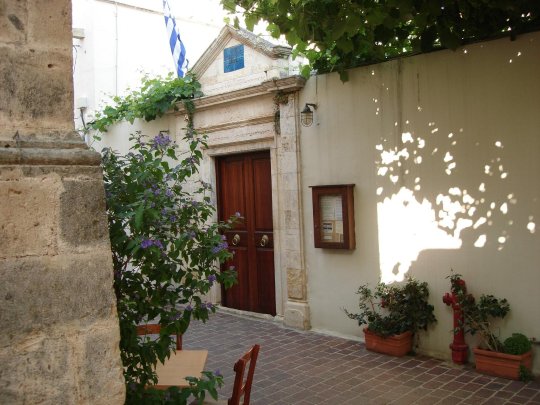
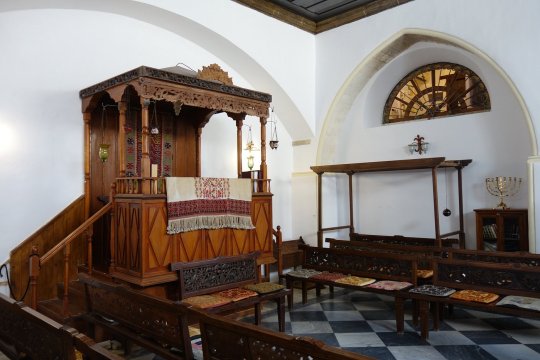
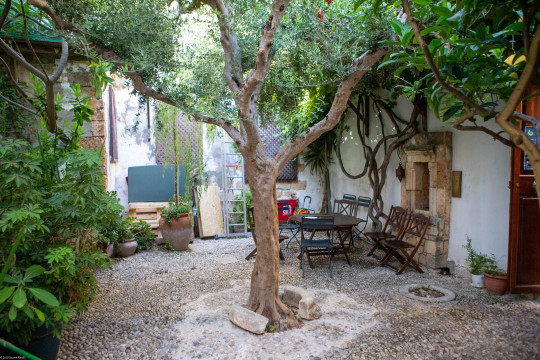
etz hayyim (“tree of life”) synagogue in chania, crete, greece. the building dates to the 14th-15th centuries, and was originally a venetian catholic church. it was acquired by chania's jewish community and converted into a synagogue in the late 17th century. chania's jews were deported due to the holocaust in 1944, after which the building remained abandoned until restoration in the 1990s.
romaniote jews are the oldest jewish community in europe and one of the oldest in the world, thought to have lived in and around present day greece since before 70 ce. they have their own liturgy that is unrelated to the more commonly used european ones (ashkenazic and sephardic).
#greece#architecture#interior#worship#jewish#romaniote#old & new#my posts#for all u Westerners 'rom' = constantinople referring to itself as the roman empire#so rome/italy is like 'west roman' constantinople/greece/anatolia is like 'east roman'#in the west its called 'byzantine' from 'byzantium' (proto-constantinople)#also it insinuates w roman empire was the 'real' roman empire (despite east lasting 1000 years longer)#in most mediterranean & w asian languages greece/greek is 'yunan/yawan/yavan' (from ionians) or 'rum/rom' (from roman)#in actual greek it's 'hellas'/'ellas' (from hellenic)#in georgian it's 'saberdzneti' for some reason but they also have their own names for a bunch of places#'greece' comes from the latin name 'graecia'#in a lot of slavic languages it's some variation of 'greece'. weird considering most were never/hardly under latin influence#if you think this is a lot just wait until u hear about the all the names for armenia#but yeah these guys were also in a lot of the balkans. if you're from the balkans and jewish you MAY have romaniote ancestry#(at least more recent romaniote ancestry than all other european jews)#not a guarantee though especially if you're ashkenazi#theres like. other jewish groups in europe that predated ashkenazi migration#most of them just got absorbed into the ashkenazi population
226 notes
·
View notes
Text
God Islamic history goes so hard. Christians are writing letters about ecclesiastical organization and getting martyred in their first couple centuries and the early Muslims are conquering all Arabia in a year then going on to topple empires with tribal levies.
64 notes
·
View notes
Text
Honestly, Dean is a quiet/private griever, so I’m incredibly grateful that we got to see him grieve onscreen for Cas in such deep ways. (There was no way to get Cas back—a paralyzing loss of hope.)
On the whole, Cas’s grief is even more understated than Dean’s. I think of Cas saying somewhat pleasantly, “I miss him.” It’s a stark, functional contrast to Dean’s grief in season 8, for example.
Then, in season 11, Cas is sad but not visibly coming apart the way Dean tends to. “Sam, I’m so sorry. If there’s anything you need…” It reminds me of the pulled-together Dean we saw in 15x19, saying, “Jack, I’m so sorry…”
Cas is often able to pull himself together to be there for Sam. The exception is season 12 after LOTUS, where he loses them both at the same time and nearly loses Mary that same night. Losing multiple family members is harder for Cas. (That’s why Azazel took out all of Mary’s support in her past to get her vulnerable enough to deal for John.)
This greatly informs Cas’s speech in Stuck in the Middle (with You). His worst nightmare was happening: watching their deaths play out in front of him because they were unwilling to leave him. It’s one of the most emotional moments we ever got to see from him.
I guess my point is, if Dean’s grieving had been like Cas’s more reserved style, it’d have been likely swept aside. As raw as Dean is, people still want to undercut it. I’m so grateful the writers allowed some of it to be shown onscreen.
(In my experience, grief is weird.)
#thinky thoughts#i’m a quiet griever too#quiet doesn’t mean less deep#i have a wonderful post somewhere about them in byzantium#anyway just throwing a little celebration of quiet grief your way#i’ve never been an anime berserker griever and like idk sometimes i’m just…#so happy to see my own grief reflected on screen in a myriad of ways#from quiet shock#confusion#denial#throwing yourself into work#etc
64 notes
·
View notes
Text
Consume my heart away; sick with desire
And fastened to a dying animal
It knows not what it is.
William Butler Yeats, "Sailing to Byzantium"
#william butler yeats#sailing to byzantium#poetry#desire#words#quote#literature#lit#roth's the dying animal takes its name from this poem
21 notes
·
View notes
Text
I love vampires. so ssoo much.
#I love you (re) dracula I love you being human I love you ganja and hess I love you the addiction I love you iwtv I love you byzantium#I highly anticipate loving you a girl walks home alone at night when I get a chance to watch you !#I know nothing about you but I love you bi bob girl from adventure time! a song of yours was on my discover weekly a while back it slapped#I LOVE YOU DR CARMILLAAAAAAA#marina marvels at life
51 notes
·
View notes
Text
yeah yeah always talking abt roseway and fallbrook arcs. we never talk about the fucking rage that comes out of her when dropping in byzantium btw
#shoots hortense between the eyes. shoots tilda in the knee.#we already know what she does to become sublight vp but there's a more complicated thought process there that haunts her#love maverick johnston tho he's always gassing up how hot max is#okay but I can't wait to get to fallbrook okay OKAY#that's THE PLACE#also kills me every time faith stops max from beating the piss out of reggie#just to go and punch nelson in the eye TWICE#I love my little hypocrite#y'all need to understand she has her own history with anger and violence#which makes her dynamic with max so much funnier and interesting#bc they're constantly trying to keep the other from doing something they'd regret#while simultaneously being like 👀 at each other#rambling#*sobbing into my hands* I want the planned intervention perk so bad it's literally so sexy of him to behave like that#(yes I know tilda it PoG dlc but it's still byzantium soooo)#(is*)
2 notes
·
View notes
Text
it is fun reading historical fiction about stuff you know next to nothing about because you’ll want to travel back in time to kill someone who died almost a thousand years ago and then the author’s note at the end will just like “sorry this guy actually turned out to be one of the most beloved rulers in the byzantine empire, i just thought it was funny to make him an annoying little freak because the main character / author of the primary source basically never mentioned him in her text unless it was absolutely necessary while she made detailed portraits of the rest of her family”
me: [throwing aside a large rock]
#part of my quest to read all the books on my shelf in alphabetical order by author#my dad is the crusades nerd not me so its not really been my area of interest#book was anna of byzantium#author is tracy barrett for those interested#she does take some artistic liberties with the timeframe and the details but like#its a big challenge to write historical fiction from a child's perspective and i took it for granted when i read it as a kid
18 notes
·
View notes
Text
I love that with a couple asterisks, you can say "Vikings VS. Romans with flamethrowers" is a historical matchup that actually happened
#the asterisks are as follows#its the byzantines so still the roman empire (fight me) but a thousand years of cultural development removed from the romans you imagined#Its the Rus so like... slavic-norse culture from the area thats now Ukraine and russia and that general area#and flamethrowers are greek fire. I'm sure we all know everyone's favorite brand of medieval napalm#anyway ain't history neat?#history#romans#roman empire#byzantine empire#byzantium#vikings#greek fire
2 notes
·
View notes
Text
Vladimir Putin, the Justinian of the modern era
4 notes
·
View notes
Text

I’m fine
#it’s literally hair dye - I’m finally touching up/recoloring my hair i#but it looks like I re-enacted that one scene from Byzantium with Gemma Arterton
6 notes
·
View notes
Text
Mmmmm writing this story has just made me repeatedly run around the fact that there's no such thing as a pre-colonization way of writing about Copts even in fantasy
#Cipher talk#The thing is that. I've seen other copts talk about how we have a victim/martyr complex as a culture#(Sometimes leading to the Shit Ass Take that Copts who understand our identity through an Indigenous framework are perpetuating that)#Abd it's true. But part of why it's true is Copts have never been the first and last governors of themselves#The cultural context is by the time we start recognizably being Copts we have been put in a political situation where we're the lowest rung#Of society by dint of being Native Egyptians at least since Rome moved in a few centuries ago and were not being treated super well under#The Ptolemic dynasty if memory serves#The iconography of Coptic culture- aside from what we adapted of the old pagan religion and suprosing borrowing from Persia- is the#Iconography of those who had powers over us- empires and those they favored before us- repurposed to our own ends (Read is there any#Justification for the existence of Coptic art its a very good essay will send a link if asked)#It goes from Rome to Byzantium to Persia for a few years and then! Islamic conquest. And then! Mamluk dynasty. And then! Ottoman empire.#And then! France and Britain. And then! Not really independent sultanate. And then! Arab republic#Of course with the overlapping Amazigh control of Upper Egypt between 14-something and 1819?#Which. I love my Amazigh brothers and sisters. But we weren't treated well then either. The historical record is flawed but not good#And I! Hate this for us!#It could maybe have been different? I'd have to go back to the textbooks but I remember there were revolts in Egypt against Rome#That Early Copts probably participated in#Anyways. Tsuris pouring out my ears <3
4 notes
·
View notes
Text
3 Hopes you promised me Dimitri and Edelgard being allies in that first trailer how DARE YOU
#( also like. I hope they dont make the almyrans into one dimensional villains. )#( i know the relationship between the alliance and almyra is basically that of byzantium & the ottoman empire but. still. )#( like hi as someone who's country was fucked by the ottomans. this is not how to portray it lmao. )#( however the synopsis for Scarlet Blaze says Edelgard flushes out hidden dark forces so im hoping that means she kicks TWSITD ass. )#( ....honestly i only care abt Azure Gleam but if there's no secret church route/if they do the cabbage fam dirty imma riot. )#( intsys. intsys listen. if you keep seteth from me i will never forgive you. give me my MANNNNN. )#( ooc tbt. )
9 notes
·
View notes
Text
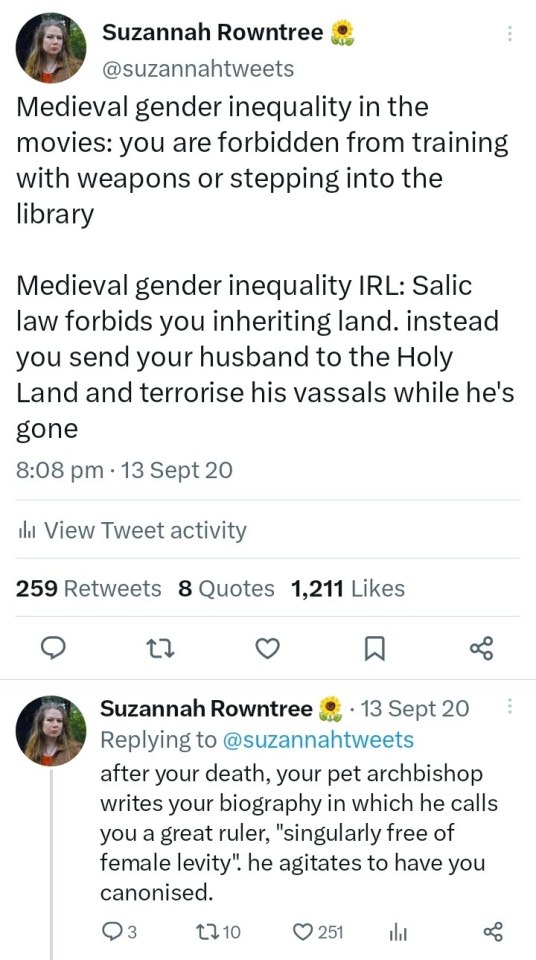
all RIGHT:
Why You're Writing Medieval (and Medieval-Coded) Women Wrong: A RANT
(Or, For the Love of God, People, Stop Pretending Victorian Style Gender Roles Applied to All of History)
This is a problem I see alllll over the place - I'll be reading a medieval-coded book and the women will be told they aren't allowed to fight or learn or work, that they are only supposed to get married, keep house and have babies, &c &c.
If I point this out ppl will be like "yes but there was misogyny back then! women were treated terribly!" and OK. Stop right there.
By & large, what we as a culture think of as misogyny & patriarchy is the expression prevalent in Victorian times - not medieval. (And NO, this is not me blaming Victorians for their theme park version of "medieval history". This is me blaming 21st century people for being ignorant & refusing to do their homework).
Yes, there was misogyny in medieval times, but 1) in many ways it was actually markedly less severe than Victorian misogyny, tyvm - and 2) it was of a quite different type. (Disclaimer: I am speaking specifically of Frankish, Western European medieval women rather than those in other parts of the world. This applies to a lesser extent in Byzantium and I am still learning about women in the medieval Islamic world.)
So, here are the 2 vital things to remember about women when writing medieval or medieval-coded societies
FIRST. Where in Victorian times the primary axes of prejudice were gender and race - so that a male labourer had more rights than a female of the higher classes, and a middle class white man would be treated with more respect than an African or Indian dignitary - In medieval times, the primary axis of prejudice was, overwhelmingly, class. Thus, Frankish crusader knights arguably felt more solidarity with their Muslim opponents of knightly status, than they did their own peasants. Faith and age were also medieval axes of prejudice - children and young people were exploited ruthlessly, sent into war or marriage at 15 (boys) or 12 (girls). Gender was less important.
What this meant was that a medieval woman could expect - indeed demand - to be treated more or less the same way the men of her class were. Where no ancient legal obstacle existed, such as Salic law, a king's daughter could and did expect to rule, even after marriage.
Women of the knightly class could & did arm & fight - something that required a MASSIVE outlay of money, which was obviously at their discretion & disposal. See: Sichelgaita, Isabel de Conches, the unnamed women fighting in armour as knights during the Third Crusade, as recorded by Muslim chroniclers.
Tolkien's Eowyn is a great example of this medieval attitude to class trumping race: complaining that she's being told not to fight, she stresses her class: "I am of the house of Eorl & not a serving woman". She claims her rights, not as a woman, but as a member of the warrior class and the ruling family. Similarly in Renaissance Venice a doge protested the practice which saw 80% of noble women locked into convents for life: if these had been men they would have been "born to command & govern the world". Their class ought to have exempted them from discrimination on the basis of sex.
So, tip #1 for writing medieval women: remember that their class always outweighed their gender. They might be subordinate to the men within their own class, but not to those below.
SECOND. Whereas Victorians saw women's highest calling as marriage & children - the "angel in the house" ennobling & improving their men on a spiritual but rarely practical level - Medievals by contrast prized virginity/celibacy above marriage, seeing it as a way for women to transcend their sex. Often as nuns, saints, mystics; sometimes as warriors, queens, & ladies; always as businesswomen & merchants, women could & did forge their own paths in life
When Elizabeth I claimed to have "the heart & stomach of a king" & adopted the persona of the virgin queen, this was the norm she appealed to. Women could do things; they just had to prove they were Not Like Other Girls. By Elizabeth's time things were already changing: it was the Reformation that switched the ideal to marriage, & the Enlightenment that divorced femininity from reason, aggression & public life.
For more on this topic, read Katherine Hager's article "Endowed With Manly Courage: Medieval Perceptions of Women in Combat" on women who transcended gender to occupy a liminal space as warrior/virgin/saint.
So, tip #2: remember that for medieval women, wife and mother wasn't the ideal, virgin saint was the ideal. By proving yourself "not like other girls" you could gain significant autonomy & freedom.
Finally a bonus tip: if writing about medieval women, be sure to read writing on women's issues from the time so as to understand the terms in which these women spoke about & defended their ambitions. Start with Christine de Pisan.
I learned all this doing the reading for WATCHERS OF OUTREMER, my series of historical fantasy novels set in the medieval crusader states, which were dominated by strong medieval women! Book 5, THE HOUSE OF MOURNING (forthcoming 2023) will focus, to a greater extent than any other novel I've ever yet read or written, on the experience of women during the crusades - as warriors, captives, and political leaders. I can't wait to share it with you all!
#watchers of outremer#medieval history#the lady of kingdoms#the house of mourning#writing#writing fantasy#female characters#medieval women#eowyn#the lord of the rings#lotr#history#historical fiction#fantasy#writing tip#writing advice
29K notes
·
View notes